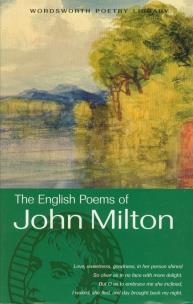- Regulamin
- Koszty dostawy
- Kontakt
- Dziś w ofercie 236 680 produktów
KSIĄŻKI
- Albumy
- Beletrystyka
- Biografie
- Dla dzieci i młodzieży
- Edukacja
- Ekonomia i biznes
- Ezoteryka
- Historia
- Informatyka
- Kalendarze
- Komiksy
- Kryminał i sensacja
- Kultura i sztuka
- Literatura faktu
- Literatura kobieca
- Literatura piękna
- Medycyna
- Nauka języków obcych
- Nauki humanistyczne
- Nauki przyrodnicze
- Nauki ścisłe
- Podręczniki
- Poradniki
- Prawo i administracja
- Przewodniki i podróże
- Psychologia
- Religia
- Sport
- Technika
- Zdrowie i uroda
ZABAWKI
- Artykuły dla niemowląt
- Bączki
- Bujaki i skoczki
- Ciągnij / pchaj
- Dla niemowlaka
- Grzechotki i gryzaki
- Karuzele i pozytywki
- Maty i centra zabaw
- Projektory i lampki
- Sortery i piramidki
- Zabawki
- Edukacyjne i kreatywne
- Figurki
- Klocki
- Lalki
- Pojazdy
- Pluszaki i maskotki
- Sport i rekreacja
- Zabawa w dom
- Zabawki drewniane
- Puzzle
- Do 200 elementów
- 201-500 elementów
- 501-1000 elementów
- Ponad 1000 elementów
- Puzzle 3D
ART. PAP
- Artykuły biurowe
- Artykuły piśmiennicze
- Bloczki i kartki samoprzylepne
- Dziurkacze
- Kalkulatory
- Nożyczki i nożyki
- Skoroszyty
- Teczki
- Wizytowniki
- Zszywacze
- Artykuły szkolne
- Akcesoria szkolne
- Modelowanie
- Notatniki i zeszyty
- Piórniki
- Plecaki i torby
- Pojemniki na śniadanie
- Pomoce naukowe
- Przybory matematyczne
- Przybory rysunkowe
- Upominki i gadżety
- Akcesoria do książek
- Artykuły balowe
- Breloki i zawieszki
- Drobiazgi, różności
- Kubki
- Oferta Świąteczna
- Papeteria, kartki i naklejki
- Skarpetki Many Mornings
- Upominki
GRY
MULTIMEDIA
- Audiobooki
- Beletrystyka
- Biografie i wspomnienia
- Dla dzieci i młodzieży
- Fantastyka
- Filozofia i religia
- Historia
- Literatura faktu i reportaż
- Poradniki
- Sensacja i kryminał
- Filmy DVD/BD
- Animowane
- Biograficzne
- Fantasy
- Horrory
- Komedie
- Romanse
- Science Fiction
- Sensacyjne / kino akcji
- Thrillery
- Muzyka CD
- Alternatywna
- Blues
- Dla dzieci
- Jazz
- Klasyczna
- Piosenka aktorska i poetycka
- Pop
- Rock
- Świąteczna i kolędy
- Akcesoria GSM
- Głośniki
- Kable i adaptery
- Klawiatury
- Myszy
- Słuchawki
PROMOCJE
ZDROWIE
LEGO

The English Poems of John Milton
Autor: Milton John
Wydawca:
Wordsworth
ISBN:
9781853264108
EAN:
9781853264108
oprawa:
Miękka
format:
13.0x20.0cm
język:
angielski
liczba stron:
602
rok wydania:
2004
(0) Sprawdź recenzje
Opis produktu
Zasady bezpieczeństwa
With an Introduction and Notes by Laurence Lerner, formerly Professor of English at the University of Sussex.
John Milton (1608-74) has a strong claim to be considered the greatest English poet after Skakespeare. His early poems, collected and published in 1645, include the much loved pair 'L'Allegro' and 'Il Penseroso' ('the cheerful man and the thoughtful man'), 'Lycidas' (his great elegy on a fellow poet) and 'Comus' (the one masque which is still read today). When the Civil War began Milton abandoned poetry for politics and wrote a series of pamphlets in defence of the Parliamentary party, then in defence of the execution of Charles I: these include his great defence of the freedom of the press, 'Areopagitica'. In the course of this work he lost his sight, and was blind for the last twenty years of his life.
During this time he wrote his two great epics, 'Paradise Lost' and 'Paradise Regained', and his retelling of the story of Samson as a Greek tragedy.
CENA:
17,55
zł
Cena detaliczna:
22,00 zł
20%
rabatu
Najniższa cena z ostatnich 30 dni: 17,60 zł
Produkt niedostępny
Uwaga!!!
Ten produkt jest zapowiedzią. Realizacja Twojego zamówienia ulegnie przez to wydłużeniu do czasu premiery tej pozycji. Czy chcesz dodać ten produkt do koszyka?


Wybierz wariant produktu
